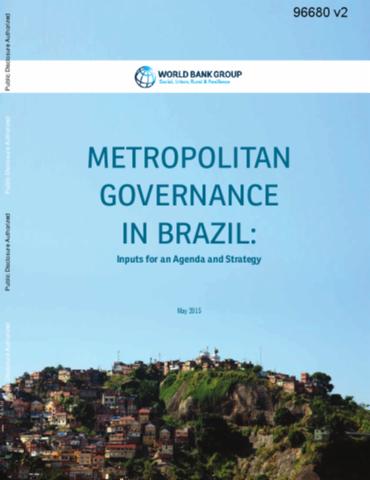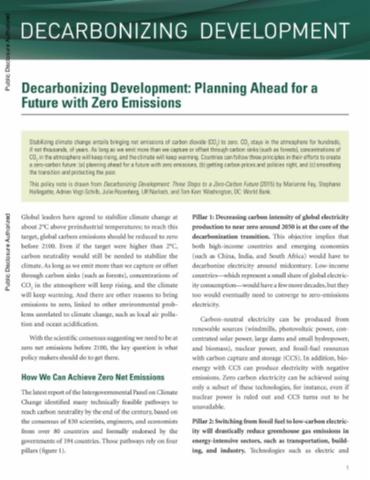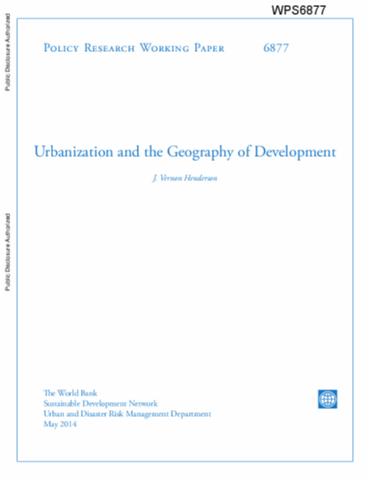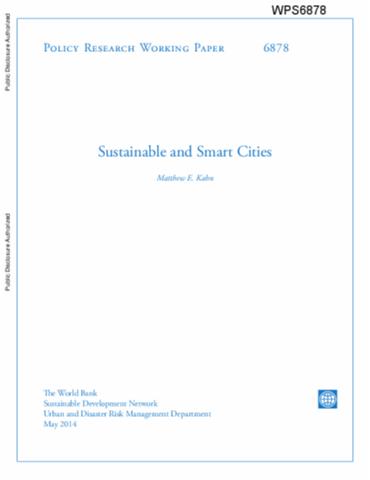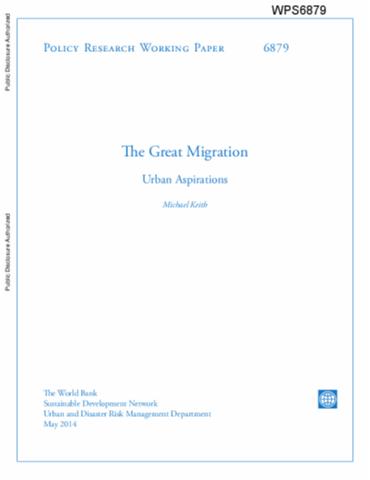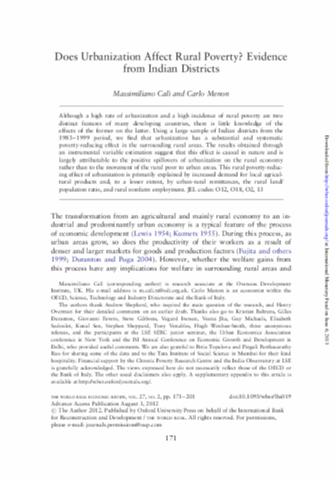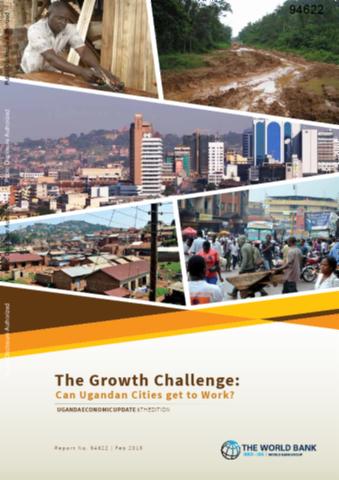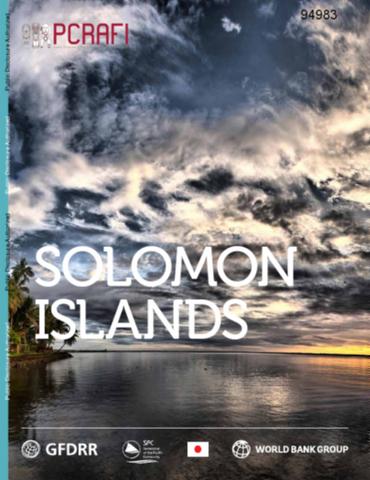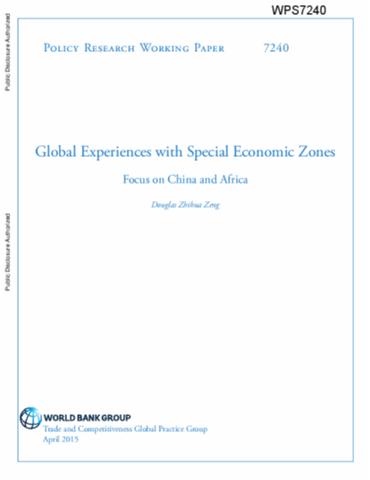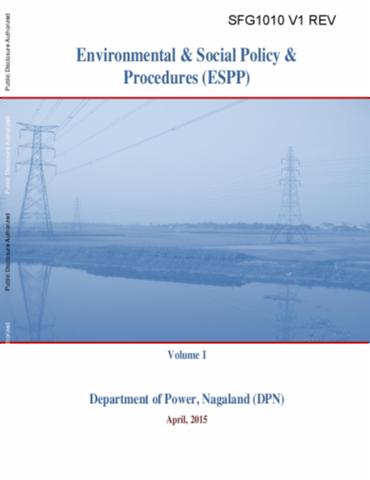
Topics and Regions
Details
Location
Contributions
Displaying 611 - 620 of 630Metropolitan Governance in Brazil
In less than fifty years, Brazil evolved from a predominantly rural society and economy to a highly urbanized country in which 85 percent of its people now live in urban areas and more than 90 percent of the country’s GDP is generated in the cities. This rapid urbanization process was characterized by a lack of planning and an enduring framework of inequality, resulting in high degrees of concentrated poverty in the urban areas. Much of this urbanization has taken place in metropolitan regions (MRs).
Decarbonizing Development
Stabilizing climate change entails bringing net emissions of carbon dioxide (CO2) to zero. CO2 stays in the atmosphere for hundreds, if not thousands, of years. As long as we emit more than we capture or offset through carbon sinks (such as forests), concentrations of CO2 in the atmosphere will keep rising, and the climate will keep warming. Countries can follow three principles in their efforts to create a zero-carbon future: (a) planning ahead for a future with zero emissions, (b) getting carbon prices and policies right, and (c) smoothing the transition and protecting the poor.
Urbanization and the Geography of Development
This paper focuses on three interrelated questions on urbanization and the geography of development. First, although we herald cities with their industrial bases as "engines of growth," does industrialization in fact drive urbanization? While such relationships appear in the data, the process is not straightforward. Among developing countries, changes in income or industrialization correlate only weakly with changes in urbanization. This suggests that policy and institutional factors may also influence the urbanization process.
Sustainable and Smart Cities
This paper explores the challenges and opportunities that government officials face in designing coherent 'rules of the game' for achieving urban sustainability during times of growth. Sustainability is judged by three criteria. The first involves elements of day-to-day quality of life, such as having clean air and water and green space. The provision of these public goods has direct effects on the urban public's health and productivity. The second focuses on the city's greenhouse gas emissions.
The Great Migration : Urban Aspirations
The great 21st-century migration into cities will present both a great challenge for humanity and a significant opportunity for global economic growth. This paper describes the diverse patterns that define this metropolitan migration. It then lays out a framework for understanding the costs and benefits of new arrivals through migration's externalities and the challenges and policy tradeoffs that confront city stakeholders.
Does Urbanization Affect Rural Poverty? Evidence from Indian Districts
Although a high rate of urbanization and a high incidence of rural poverty are two distinct features of many developing countries, there is little knowledge of the effects of the former on the latter. Using a large sample of Indian districts from the 1983–1999 period, we find that urbanization has a substantial and systematic poverty-reducing effect in the surrounding rural areas.
Uganda Economic Update, February 2015
This Fifth Edition of the Uganda Economic Update presents evidence that if the urbanization process is well managed, it has the potential to stimulate economic growth and to provide productive jobs for a greater proportion of Uganda’s young and rapidly expanding population. In many countries across the world, the growth of cities has stimulated the establishment and expansion of productive businesses by reducing the distance between suppliers and customers. The growth of cities has also facilitated provision of social services and infrastructure through economies of scale.
Solomon Islands
This report aims to build understanding of the existing disaster risk financing and insurance (DRFI) tools in use in the Solomon Islands and to identify gaps where engagement could further develop financial resilience. It also aims to encourage peer exchange of regional knowledge, specifically by encouraging dialogue on past experiences, lessons learned, optimal use of these financial tools, and the effect these tools may have on the execution of post-disaster funds.
Global Experiences with Special Economic Zones
This study briefly summarizes the development experiences of special economic zones in China and Africa, the lessons that Africa can learn from China, and the preliminary results of the Chinese investments in special economic zones in Africa. The study makes recommendations on how to unleash the power of special economic zones and industrial zones in Africa through strategically leveraging the Chinese experiences.
Environmental and Social Policy and Procedures
The North Eastern Region (NER) in India is endowed with rich energy resources but faces significant bottlenecks in electricity access and availability levels. The per capita power consumption in NER is one-third of the national average. The region has a shortfall of about 500MW installed capacity against peak demand of about 1950 MW. No significant generation capacity has been added in the recent past. Therefore, inadequate power supply continues a critical constraint to sustainable growth and economic development in the NER.

